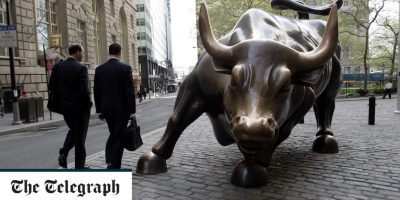Pension pots have been one of the many victims of the devastation caused by coronavirus but being invested for a bounce-back in markets could give savings a shot in the arm.
Retirees have been urged not to withdraw large amounts of cash from their investment pots as they risk locking in the steep losses made by markets. Counterintuitively, savers could see a quicker recovery of the money they lost during the market crash by injecting new cash and piggy-backing on the market’s eventual rebound.
The economic fallout of coronavirus has ravaged stock markets and the sharp losses will have had a significant negative effect on the size of “defined contribution” pension pots and those drawing an income.
But markets have started to tentatively bounce with the FTSE 100 index of the largest British businesses up 18pc since its low on March 23.
Even so, it remains down 22pc on the year so far, meaning it still has a way to go before it recovers. Historical data overwhelmingly points towards a rebound and pension savers should be ready to make the most of it when it does happen, according to Romi Savova of PensionBee, an online pension provider.
She said: “When markets are down a lot of people are actually starting to take the plunge back in. The market provides the opportunity to get back on track so with markets on the mend, this may be a time-limited opportunity to buy the market at a discount.”
Pension tax relief | How does it work?
Markets took about five years to recover from the stock market crash in 2008, Mrs Savova said. However, they could bounce back sooner following the tumble this year, because of the speed at which the downturn happened.
A saver in their 50s who has the average pension value of £48,456 and makes a contribution of £10,000 while markets are down 20pc could boost their pension by around £53,000 more than if they kept it in cash over a 15 years. This relies on markets recovering within one year.
That is according to figures compiled for Telegraph Money by PensionBee. The difference would amount to an additional annual income of around £2,000 in retirement, Ms Savova said.
As the government provides income tax relief on pensions, where a basic rate taxpayer gets a top up of 25pc, a £10,000 contribution would be boosted to £12,500.
If the market were to take three years to recover, the pension would be better off by £41,500 over the 15-year time frame. Savers would still be £31,000 better off even if markets took the full five years to recover, like the financial crisis in 2008.
























Comments